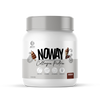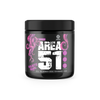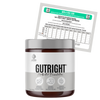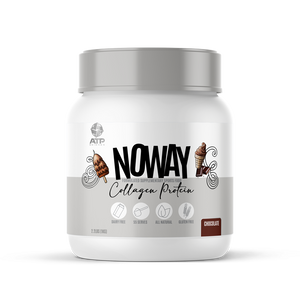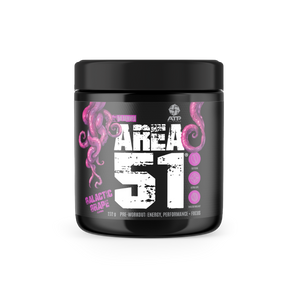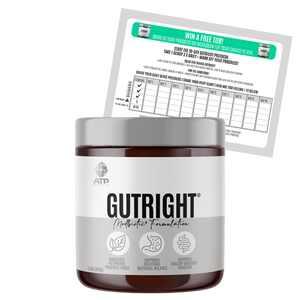Creatine - What does the Science really say?

Creatine - Almost every semi-serious athlete wants to take ‘something’ to give them ‘that edge’ in their given sport. Even people trying to lose weight want to ‘take something’ to shed a few extra kilos. Sure, clients are more than happy to eat well and exercise, but they will commonly ask what else can be taken to gain their goals faster. It seems nowadays, we want things to happen now, and lots of people are short on patience.
If you took a survey in the street, most people would say they either want to lose weight or gain muscle or both. The gain of muscle usually involves lifting heavyweights at the gym and adding extra protein in the diet. These are good suggestions! Eat more, especially protein and smash it out at the gym. OK, great, but what else can be done? A protein supplement is possibly one of the most common supplements recommended to anyone going to the gym. Probably the second most common supplement people consume is creatine. At first, this seems weird because creatine is made in the kidneys and the liver[1]. So why take it? After all, it would be cheaper to simply make it from arginine, glycine and methionine[2].
What is so Good about Supplementing Creatine?
In 2017, the International Society of Sports Nutrition (ISSN) released a position statement on creatine. They reviewed the evidence 4 years ago and found the supplement to be highly effective for muscle building and performance[3]. The ISSN doesn’t make this recommendation lightly. The review they undertook was very comprehensive and looked at performance, recovery, injury, and probably what it is most well-known for, which is exercise tolerance.
The Anabolic Effects of Creatine
When people think 'anabolic', some relate it to an androgen hormone like testosterone. Remember, creatine is a natural substance made in the body and also found in food sources such as meat. And while testosterone is also made in the body, testosterone is made from cholesterol, while creatine is made in the body from amino acids. Furthermore, creatine is not regulated like steroids because it has relatively few side effects.
Interestingly, creatine can build muscle tissue, which is where it is similar to testosterone. Creatine is converted in the body into phosphocreatine, which is used to make the energy unit in the body called adenosine triphosphate (more commonly known as ATP). Thus, creatine can help the body produce more energy, which can help you work out and work out harder[4].
Does Creatine cause Water Retention?
One of the myths surrounding creatine is that it causes fluid retention. There is some evidence of creatine causing fluid retention, however, it only happens for the first few days and only at higher doses of 20g per day[5]. Interestingly, fluid retention was once thought to be restricted to the intracellular water of the cells[6], but we now know it also increases extracellular water[7].
However, longer-term studies for up to 28 days showed that there was no increase in total body water[8]. So there is evidence for and against creatine causing fluid retention, and actually, the increase in the fluid could be a good thing. Why is fluid retention a good thing? Because skeletal muscle mass growth requires a fluid build-up[9].
Does Creatine Harm your Kidneys?
In short, no it doesn’t. So why do we think it does or where does this information come from? The answer is that it comes from 1998[10]. What happened in 1998? One guy had kidney disease while taking creatine. This proves the scientific point “correlation doesn’t mean causation”. So just because you are taking creatine while you have kidney disease, it doesn’t mean that it causes kidney disease. Also, there is some confusion behind the differences between creatine (the cool bodybuilding stuff) and creatinine (the blood marker for kidney disease). They are spelled similarly, but they are polar opposite in their function and chemistry.
Since 1998 there have been numerous studies[11] showing that creatine is generally regarded as safe and to add to that, the millions of people consuming creatine, think it is safe to say that creatine doesn’t harm the kidneys. While anything can become toxic if you take enough of it (yes, too much water can also become toxic and cause hyponatremia), creatine at doses up to 20g per day seems to be pretty safe.
Does this Supplement make you go Bald?
OK, now I have heard it all. I mean, how does some muscle stuff make you bald. Well, like all myths, there is an element of truth and again, it comes from a study published 12 years ago. What occurred in this study is that the researchers gave male rugby players 25g of creatine per day and studied them over a few weeks. What happened was that their levels of the hormone dihydrotestosterone (DHT - a hormone associated with male pattern baldness) were increased by 56% over 7 days and DHT levels stayed high even after 2 weeks[12]. It is worth noting that high-intensity training can increase DHT levels and these results have never been replicated. Also, there is no anecdotal evidence that creatine causes baldness.
The Take-Home Message.
There is plenty of evidence that suggests creatine works to build muscles and helps to create ATP (energy). So not only does creatine build muscle, but it also gives your muscle the energy to work out harder, making your gains much better. There is also evidence that suggests taking 20g per day of creatine for a week and then 6g per day is the best dose for optimal performance.References
1. Wyss M, Kaddurah-Daouk R. Creatine and creatinine metabolism. Physiol. Rev. 2000;80:1107–213.2. Wyss M, Kaddurah-Daouk R. Creatine and creatinine metabolism. Physiol. Rev. 2000;80:1107–213.
3. Kreider RB, Kalman DS, Antonio J, Ziegenfuss TN, Wildman R, Collins R, Candow DG, Kleiner SM, Almada AL, Lopez HL. International Society of Sports Nutrition position stand: safety and efficacy of creatine supplementation in exercise, sport, and medicine. J. Int. Soc. Sports Nutr. 2017;14:18-z eCollection 2017.
4. Antonio, J., Candow, D.G., Forbes, S.C. et al. Common questions and misconceptions about creatine supplementation: what does the scientific evidence really show?. J Int Soc Sports Nutr 18, 13 (2021). https://doi.org/10.1186/s12970-021-00412-w
5. Hall M, Trojian TH. Creatine supplementation. Curr. Sports Med. Rep. 2013;12:240–4.
6. Ziegenfuss T, Lowery LM, Lemon P. Acute fluid volume changes in men during three days of creatine supplementation. Journal of Exercise Physiology Online. 1998;1:1.
7. Rosene JM, Matthews TD, Mcbride KJ, Galla A, Haun M, Mcdonald K, Gagne N, Lea J, Kasen J, Farias C. The effects of creatine supplementation on thermoregulation and isokinetic muscular performance following acute (3-day) supplementation. J. Sports Med. Phys. Fitness. 2015;55:1488–96.
8. Rawson ES, Stec MJ, Frederickson SJ, Miles MP. Low-dose creatine supplementation enhances fatigue resistance in the absence of weight gain. Nutrition. 2011;27:451–5.
9. Safdar A, Yardley NJ, Snow R, Melov S, Tarnopolsky MA. Global and targeted gene expression and protein content in skeletal muscle of young men following short-term creatine monohydrate supplementation. Physiol. Genomics. 2008;32:219–28.
10. Pritchard NR, Kalra PA. Renal dysfunction accompanying oral creatine supplements. Lancet. 1998;351:1252–3.
11. De Souza E Silva A; Pertille, A.; Reis Barbosa, C. G.; Aparecida de Oliveira Silva, J; de Jesus, D. V.; Ribeiro, A G S V; Baganha, R. J.; de Oliveira, J. J. Effects of Creatine Supplementation on Renal Function: A Systematic Review and Meta-Analysis. J. Ren. Nutr. 2019, 29, 480-489.
12. Van der Merwe J, Brooks NE, Myburgh KH. Three weeks of creatine monohydrate supplementation affects the dihydrotestosterone to testosterone ratio in college-aged rugby players. Clin. J. Sport Med. 2009;19:399–404.

